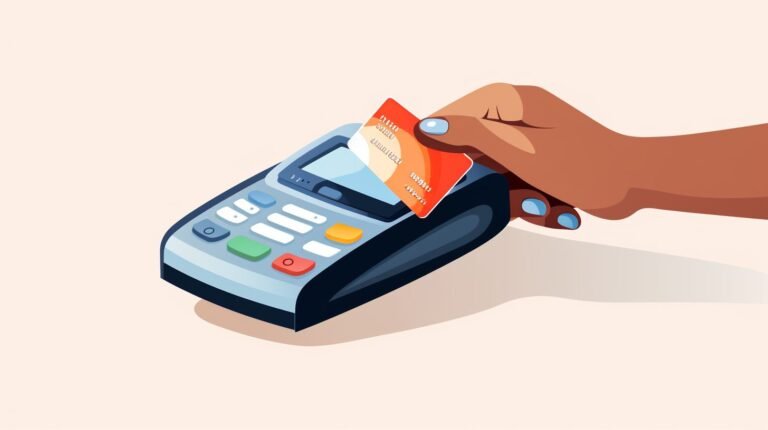Credit Counseling: Is It Worth It?

Key Takeaways
- Credit counseling is a service where trained counselors help you manage your money and debt better.
- The process involves gathering financial information, setting up an initial appointment, and developing a personalized plan of action.
- Credit counseling can have benefits like creating a budget, negotiating lower interest rates, and improving financial literacy.
- Potential drawbacks include costs, limited coverage of certain debts, temporary impact on credit score, and the time commitment of completing a debt management plan.
What is Credit Counseling?
 Credit counseling is a way to get help with your money issues. Trained counselors give you advice one-on-one. They teach people how to manage their money and debt better. This service can be free for the first meeting and it can happen in person, online or on the phone. These counselors guide you to create a budget that works for you. They help make spending decisions clear and easy to understand. Credit counselors also talk about things like debt consolidation, bankruptcy, and debt settlement as choices for handling financial pressure.
Credit counseling is a way to get help with your money issues. Trained counselors give you advice one-on-one. They teach people how to manage their money and debt better. This service can be free for the first meeting and it can happen in person, online or on the phone. These counselors guide you to create a budget that works for you. They help make spending decisions clear and easy to understand. Credit counselors also talk about things like debt consolidation, bankruptcy, and debt settlement as choices for handling financial pressure.The Process of Credit Counseling
The process of credit counseling involves several steps, starting with gathering your financial information and setting up an initial appointment with a credit counselor. From there, you will work together to develop a plan of action tailored to your specific financial situation.Gathering your financial information
First, you gather all your financial data. This means bank statements, credit card bills, and pay stubs. You take a close look at where your money is going each month. Seeing your income and expenses on paper helps to show the full picture of your finances. Next, this information goes off to the credit counselor. They use it to get an idea of how you are handling money now. Then they can give advice about changes you need to make. Also, by looking at things like loans or debt relief options already in place, they can help decide if these are working for you.Setting up an initial appointment
You need to fix a time for your first meeting with the credit counselor. It can be face-to-face, online, or on call. The first meet is free most of the time. They will go through all your money details in this meet. This includes how much you earn and spend, what you own, and how much debt you have. From these details, they find out the best way to help you out. So your chosen service has to be good and honest if you want real help.Developing a plan of action
Now, let’s talk about making a plan. A good credit counselor is there to help you with this step. They will look at your income and expenses. Then, they can help design a budget that fits your life. This could be cutting back in some places or finding new ways to bring in money. The aim is to pay your debts faster without feeling stretched too thin. All of this is done keeping future financial goals in mind as well, so you’re not just living day by day but planning for the long haul too.Pros and Cons of Credit Counseling
 Credit counseling has its benefits, such as providing professional guidance and helping you develop a plan to manage your debts effectively. On the other hand, there are potential drawbacks to consider. To learn more about the pros and cons of credit counseling, continue reading.
Credit counseling has its benefits, such as providing professional guidance and helping you develop a plan to manage your debts effectively. On the other hand, there are potential drawbacks to consider. To learn more about the pros and cons of credit counseling, continue reading.Possible benefits
Credit counseling can have several potential benefits for individuals struggling with debt. Firstly, credit counselors can help you develop a realistic budget that takes into account your income and expenses. This can provide you with a clear roadmap to better manage your finances and make progress towards paying off debt. Additionally, credit counseling agencies may be able to negotiate lower interest rates or reduced fees with creditors on your behalf, which could save you money in the long run. Moreover, credit counseling can offer educational resources and tools to improve your financial literacy and empower you to make informed decisions about borrowing and spending. Overall, engaging in credit counseling has the potential to help individuals regain control of their finances and work towards a more stable financial future.Potential drawbacks
One potential drawback of credit counseling is the cost. There may be initial setup fees and monthly fees associated with debt management plans. These fees can add up over time and increase the overall cost of seeking credit counseling services. Additionally, not all types of debt may be included in a debt management plan, such as mortgages, car loans, or student loans. This means that individuals will still have to manage those debts separately. Another consideration is the impact on one’s credit score. Closing credit cards included in a debt management plan can potentially lower an individual’s credit score. Lastly, it’s important to note that completing a debt management plan takes time – usually three to five years.How Credit Counseling Can Impact Your Credit Score
 Credit counseling can have both positive and negative effects on your credit score. On the positive side, enrolling in a debt management plan (DMP) through credit counseling can show lenders that you are taking steps to repay your debts responsibly. This can potentially improve your credit score over time as you make consistent payments towards reducing your outstanding balances. However, it’s important to note that initially, entering into a DMP may have a temporary negative impact on your credit score. This is because creditors may report that you are making reduced payments or participating in a debt management program, which could be seen as a red flag by lenders. However, as you continue to make regular payments and demonstrate responsible financial behavior, this negative impact should diminish over time. It’s also worth mentioning that seeking credit counseling does not directly affect other factors that determine your credit score, such as payment history, amounts owed, length of credit history, new credits opened or types of credits used. These aspects will still be evaluated by lenders when considering you for future loans or lines of credit. In summary, while there may be short-term implications on your credit score when starting with a DMP through credit counseling, over time it has the potential to positively impact your overall financial situation and help improve your creditworthiness.
Credit counseling can have both positive and negative effects on your credit score. On the positive side, enrolling in a debt management plan (DMP) through credit counseling can show lenders that you are taking steps to repay your debts responsibly. This can potentially improve your credit score over time as you make consistent payments towards reducing your outstanding balances. However, it’s important to note that initially, entering into a DMP may have a temporary negative impact on your credit score. This is because creditors may report that you are making reduced payments or participating in a debt management program, which could be seen as a red flag by lenders. However, as you continue to make regular payments and demonstrate responsible financial behavior, this negative impact should diminish over time. It’s also worth mentioning that seeking credit counseling does not directly affect other factors that determine your credit score, such as payment history, amounts owed, length of credit history, new credits opened or types of credits used. These aspects will still be evaluated by lenders when considering you for future loans or lines of credit. In summary, while there may be short-term implications on your credit score when starting with a DMP through credit counseling, over time it has the potential to positively impact your overall financial situation and help improve your creditworthiness.Choosing a Credit Counseling Service
 When choosing a credit counseling service, it’s important to consider whether you prefer a for-profit or nonprofit organization.
When choosing a credit counseling service, it’s important to consider whether you prefer a for-profit or nonprofit organization.For-Profit vs. Nonprofit Credit Counseling
Credit counseling comes in two main forms: for-profit and nonprofit. While both can offer helpful services, there are distinct differences and potential advantages or drawbacks between the two.| For-Profit Credit Counseling | Nonprofit Credit Counseling | |
|---|---|---|
| 1 | For-profit credit counseling agencies are motivated by the goal of making money. This can sometimes lead to a focus on profit rather than the best interests of the individual. | Nonprofit credit counseling agencies, on the other hand, are specifically structured to prioritize the best interests of the client and not profit. This means they are more likely to offer plans and strategies that are truly best for the individual. |
| 2 | For-profit agencies may push individuals into debt management plans that benefit the agency financially but may not be the most suitable option for the individual. | Nonprofit agencies are recommended because they are more likely to offer a wider range of options and work to tailor a plan that best fits the individual’s unique financial situation. |
| 3 | For-profit credit counseling agencies often charge upfront fees for their services, which can be an additional financial burden. | Nonprofit credit counseling agencies often offer free initial consultations and are more transparent about any potential fees associated with their services. |
| 4 | Choosing a reputable for-profit credit counseling service can be more challenging. Not all for-profit agencies are untrustworthy, but it is important to do thorough research and get all fees and services in writing before committing. | Nonprofit credit counseling agencies are generally seen as more trustworthy due to their nonprofit status. Referrals from family, friends, or financial institutions can be especially helpful in identifying good nonprofit credit counseling options. |
What to look for in a credit counseling service
When choosing a credit counseling service, it’s important to consider certain factors. Here’s what to look for:- Accreditation: Make sure the credit counseling agency is accredited by a recognized organization like the Financial Counseling Association of America (FCAA) or the National Foundation for Credit Counseling (NFCC). This ensures that they meet industry standards and adhere to ethical practices.
- Certification: Check if the credit counselors are certified. Certified counselors have undergone specific training and demonstrated their expertise in areas such as budgeting, debt management, and credit counseling.
- Reputation: Research the reputation of the agency before committing to their services. Look for customer reviews, ratings from organizations like the Better Business Bureau (BBB), and any complaints filed against them.
- Services offered: Consider what services are provided by the credit counseling agency. Do they offer personalized budgeting assistance? Can they negotiate with creditors on your behalf? Ensure that their services align with your specific financial needs.
- Fees: Inquire about the fees associated with using their services. Nonprofit agencies often charge lower fees than for-profit ones. Be cautious of any upfront fees or hidden charges.
- Consumer education: A good credit counseling service will offer educational materials, workshops, or resources to help you improve your financial literacy and make informed decisions about managing your finances.
Alternatives to Credit Counseling
There are a few alternatives to credit counseling that you may want to consider, such as debt consolidation and debt settlement.Debt Consolidation
Debt consolidation is a common option offered by credit counseling agencies. It helps you combine all your unsecured debts, like credit card bills and personal loans, into one manageable monthly payment. This can make it easier to keep track of your payments and potentially lower your interest rates. Debt consolidation typically involves working with a credit counselor to create a debt management plan that fits your financial situation. These plans usually take three to five years to complete, but they can provide you with a clear path towards becoming debt-free.Debt Settlement
Debt settlement is an option for people who have a lot of debt and can’t pay it all back. With debt settlement, you negotiate with your creditors to settle the debt for less than what you owe. This means that instead of paying the full amount, you pay a smaller amount to clear the debt. Debt settlement should be considered as a last resort because it can have negative effects on your credit score and may even lead to legal action from creditors. It’s important to be aware that there are fees associated with using a debt settlement company, which can make your overall debt burden worse. However, if you’re unable to qualify for other options like bankruptcy, then debt settlement may provide some relief.Frequently Asked Questions about Credit Counseling
- What is credit counseling??
- How does credit counseling work??
- Can credit counseling help me pay off my debts faster??
- Will enrolling in a credit counseling program affect my credit score??
- Is credit counseling only for people with bad credit??
- How long does a typical credit counseling program last??
- How much does credit counseling cost??
- Will creditors continue to harass me if I enroll in a credit counseling program?
How Does Credit Utilization Affect the Need for Credit Counseling?
Credit utilization importance greatly impacts the necessity for credit counseling. High credit utilization ratios indicate a heavy reliance on credit, leading to potential financial distress. Credit counseling can help individuals understand the adverse effects of high utilization, develop better financial habits, and effectively manage their credit. Seeking counseling can alleviate the need for excessive credit utilization and guide individuals towards a healthier financial future.
Conclusion
 In conclusion, credit counseling can be a valuable tool for those struggling with debt. It offers personalized guidance and assistance in creating a plan to manage financial obligations. While it may not be the right solution for everyone, it is worth considering if you need help getting back on track and achieving your financial goals. So, if you’re unsure about credit counseling, take the time to explore your options and see if it’s the right choice for you.
In conclusion, credit counseling can be a valuable tool for those struggling with debt. It offers personalized guidance and assistance in creating a plan to manage financial obligations. While it may not be the right solution for everyone, it is worth considering if you need help getting back on track and achieving your financial goals. So, if you’re unsure about credit counseling, take the time to explore your options and see if it’s the right choice for you.





